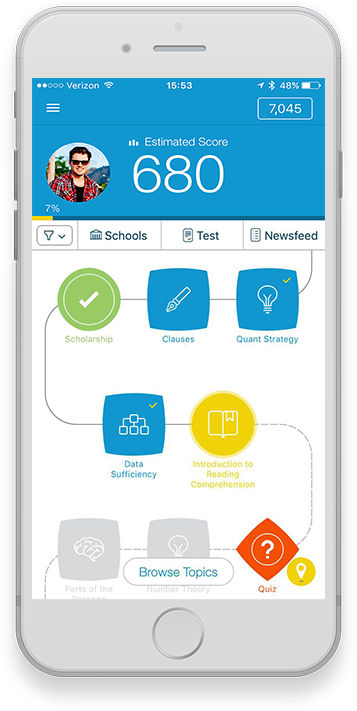Ready4 Test Prep Apps Connect Admissions, Recruitment, Marketing Teams to Prospective Students
A company that offers free mobile apps that prepare students for college entrance exams has partnered with more than 30 universities worldwide to help them engage and recruit prospective students worldwide. Ready4 has signed on Massachusetts Institute of Technology (MIT), Georgetown University, University of North Carolina at Chapel Hill, Boston College, Monash University and more partners looking to reach prospective students using its apps.

Students tap Ready4's free apps to prepare for ACT, PSAT, SAT, GRE, GMAT, MCAT and more. Image Credit: Ready4.
Ready4 offers a suite of seven apps that prepare students for tests like the ACT, SAT, GRE, GMAT and MCAT, as well as résumé building, job preparation and more — all available at no cost to students. More than 1.56 million mobile users that span 195-plus countries use the apps, according to a news release. The company has worked with more than 500 universities, offering admissions, recruiting and marketing teams data-driven insights through its adaptive mobile platform.
Recently, Ready4 launched a pilot program with Harvard University’s HBX Credential of Readiness (CORe) — a program jointly offered by its business school’s online education initiative HBX and Harvard Extension School. According to a news release, HBX CORe will utilize the company’s lead generation and marketing programs, “including in-app notifications, e-mail promotion and newsletter inclusion,” to engage students with the program.
“An important part of enabling lifelong learning is helping match students with the best schools for their needs, which is increasingly difficult for students that are faced with a barrage of marketing materials,” said Elad Shoushan, CEO of Ready4, in the news release. “Modern mobile technology cuts through this clutter and makes the process easier than ever. Guided by the journey outlined in our top-rated apps, Ready4 has dramatically simplified the search process for students and the recruiting process for schools by aligning the qualities that matter most to both, even before a single entrance exam is taken.”
To learn more, visit the Ready4 site here.
About the Author
Sri Ravipati is Web producer for THE Journal and Campus Technology. She can be reached at [email protected].